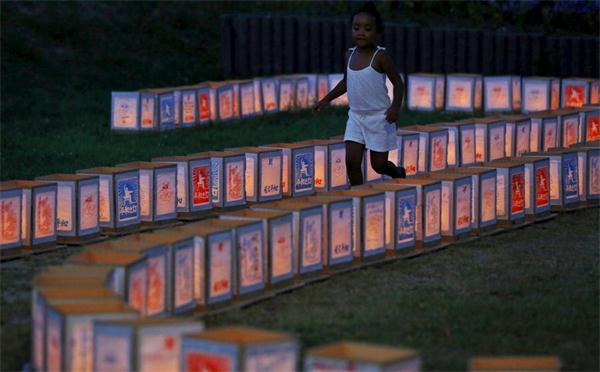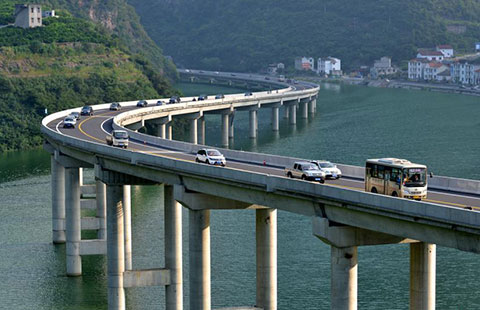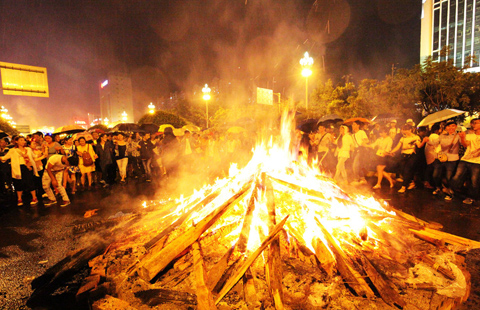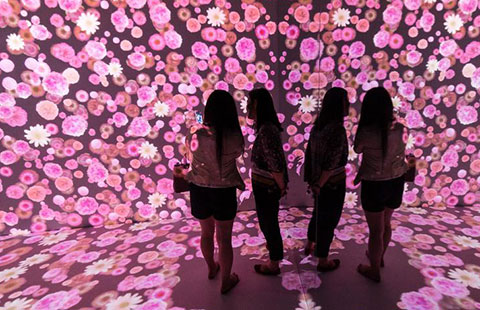Abe has historic chance to seize
Updated: 2015-08-11 08:01
(China Daily)
|
|||||||||
 |
|
A girl runs among paper lanterns in remembrance of atomic bomb victims on the 70th anniversary of the bombing of Nagasaki, in western Japan, August 9, 2015, on the 70th anniversary of the bombing of the city. A bell tolled in Nagasaki on Sunday morning as the Japanese city marked 70 years since the dropping of the last atomic bomb on a civilian target in the closing days of World War Two. [Photo/Agencies] |
It is a shame that a war that ended 70 years ago remains an open wound paralyzing East Asia.
If left unattended, the diplomatic impasse here guarantees an all-lose scenario that will permanently suffocate the otherwise promising potential of countries in the region and beyond.
East Asia is in dire need of crisis management; and, from a long-term perspective, reconciliation.
While successful crisis management may avoid conflicts, reconciliation paves the way for lasting peace and rapport.
A crisis can be both a danger and an opportunity. And the current crisis in East Asia is certainly dangerous.
Tensions will escalate if the widely anticipated and speculated about speech Japanese Prime Minister Shinzo Abe is due to deliver on the 70th anniversary of Japan's surrender defies the calls for repentance and apology for the Japan's past aggression and deviates from the milestone 1995 speech by then Japanese prime minister Murayama Tomiichi. His words were well received in both China and the Republic of Korea for their sincere appraisal of Japan's wrongdoings.
Because of this, it is also a moment of opportunity. Reaffirming the Murayama stance might not only defuse that ticking time bomb, but even turn the looming crisis into the possibility of Japan repairing relations with neighbors, for the immediate neighborhood to secure peace, and for the entire Asia-Pacific to regain a powerful engine for prosperity.
This will not be easy for Abe the nationalist. He is anxious to bury the past, not acknowledge it. He has just portrayed Japan as a victim of the atomic bombs, without mentioning that it was an outcome of his country's aggressions.
With only days to go before his speech, Abe and his advisers are busy weighing and refining the wording. This in itself suggests that they are unwilling to face up to their country's history, and that they just want to come up with something that pacifies their critics without compromising their twisted outlook on history.
But there simply is no alternative for Abe if he does not want to worsen ties. Missing this historic opportunity will simply convince China and the ROK that healthy ties with their neighbor are impossible while Abe is in office.

 The world in photos: Aug 3-9
The world in photos: Aug 3-9
 'Most beautiful road on water'
'Most beautiful road on water'
 Ethnic groups celebrate the Torch Festival
Ethnic groups celebrate the Torch Festival
 Ten photos you don't wanna miss (Aug 3-9)
Ten photos you don't wanna miss (Aug 3-9)
 30 historic and cultural neighborhoods to visit in China
30 historic and cultural neighborhoods to visit in China
 Beijing Museum of Natural History unveils 'Night at the Museum'
Beijing Museum of Natural History unveils 'Night at the Museum'
 Sun Yang wins third consecutive 800m free gold at worlds
Sun Yang wins third consecutive 800m free gold at worlds
 Aerial escape
Aerial escape
Most Viewed
Editor's Picks

|

|

|

|

|

|
Today's Top News
Officials to pave way for Xi's visit
China, US to exchange officials for Xi's visit
State Council approves plan to overhaul SOEs, claims report
S. Korean president mulls whether to join China's war anniversary
Sun Yang is no-show for 1,500 free final at worlds
China willing to work with US to contribute to world peace, stability
China asks further investigation on MH370
Police fatally shoot ax-wielding man at Nashville movie theater
US Weekly

|

|







